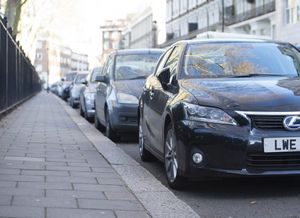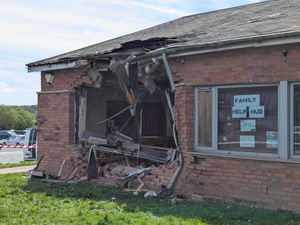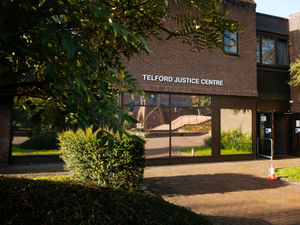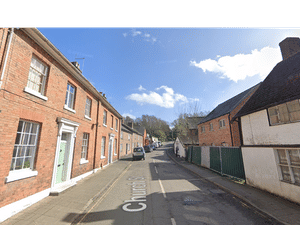Parking wars: How councils decide on the number of spaces
Today's house builders are required to reflect modern parking needs in new developments, although planning guidelines do allow some flexibility depending on the nature and location of the schemes.

As a general rule, one- and two-bedroom homes in Telford & Wrekin must have at least one allocated parking space, and four-bedroom homes should have parking for between two and four cars, depending on location.
Shropshire Council, on the other hand, has no formal guidelines, and considers new housing scheme on a case-by-case basis.
Telford & Wrekin's planning guidance varies between central areas, such as Wellington town centre, suburban areas, and rural locations.
In rural areas, two-bedroom homes should have at least two allocated spaces, and properties with four or more bedrooms are expected to provide space for four or more cars.
It says there may be a case for reducing the number of spaces in urban and central areas to discourage car ownership.
See also:
"Given the local experiences of planning for parking in a range of new developments, the council recognises that reducing car parking on suburban estates is not necessarily an effective way of reducing levels of car use and ownership," says the authority's local plan.
"On the other hand, for central and urban areas a reduction in the provision of parking may be considered."
It also says applications with "over generous" parking provision would not be supported.
The guidelines also say that people who live in flats or rented properties are less likely to own a car, and this can be reflected in the number of spaces provided.
In central and suburban developments, one bedroom homes are expected to have an average of 1.3 parking spaces per property, rising to 1.4 in rural areas.
Two-bedroom houses are expected to provide for an average of 1.4 cars in central areas, 1.6 in suburban locations, and 2.3 in rural areas.
For three-bedroom homes, there should be 1.6 spaces per household in urban areas, 2.3 in suburban areas, and 2.6 in the countryside. Four-bedroom properties are expected to have an average of 2.4 spaces each in urban areas, 2.6 in suburban developments, and four spaces in rural locations.
Five-bedroom houses are expected to provide 2.5 spaces on average in central locations, 3.8 in suburban areas and 4.2 spaces in rural sites.
Shropshire Council's area planning manager Tim Rogers said in the past policies on residential parking were set down by the former district councils.
However, following the merger of the former councils to form Shropshire Council, they were replaced in by the new authority's site allocations and management of development (Samdev) plan in December 2015.
“At this time, Shropshire Council has no formal parking policy or guidance," he said.
"We therefore consider parking requirements based on first principles and make an assessment on a site-by-site basis.”





